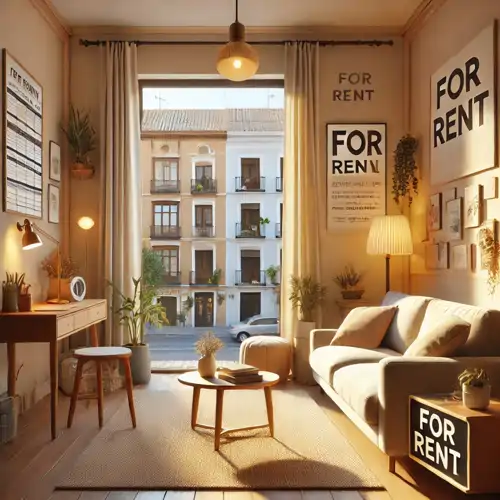If you decide to move to Spain for an extended period and plan to rent a property, it is essential to know some peculiarities of the local market. Long-term rental in Spain is not only a financial matter but also a legal one. Understanding the details can protect you from unpleasant surprises and make your relocation more comfortable.
1. Rental term: a year or until summer?
In Spain, the standard long-term rental term is usually one year, but in tourist areas, "until summer" contracts are popular—allowing landlords to rent out the property to tourists at a higher price. Think about which term suits you best and make sure to clarify the renewal conditions if you want to stay longer. It’s easier to discuss these details upfront than to find yourself unexpectedly searching for new housing mid-season.
2. Who is responsible for routine repairs?
Routine repairs are a topic for discussion. The tenant typically covers minor repairs, such as replacing lightbulbs or fixing door handles. Major repairs, however, are the landlord’s responsibility. Therefore, if the contract states otherwise, clarify what it entails to avoid unexpected expenses. Repairs are a frequent point of contention between landlords and tenants.
3. Rent payment insurance
Some landlords insist on rent payment insurance, especially if you are renting in Spain for the first time. This is an additional financial guarantee for the landlord. If insurance is a condition of the lease, verify its cost and ensure it works for you. It protects both the landlord and the tenant from unforeseen situations. Learn more about this through rent payment insurance.
4. Security deposit and its return
Typically, tenants pay a security deposit equivalent to one month’s rent. At the end of the lease, it is returned if the property has not been damaged. To avoid misunderstandings, document the property’s condition upon move-in (photos and videos are your best friends). This will help prevent unpleasant surprises upon move-out. Additional protection can be obtained through home insurance.
5. Contract renewal
In Spain, a rental contract can be renewed by mutual agreement, but the conditions may change. Ensure that the possibility of renewal and its terms are specified in the contract. This way, you can avoid a sudden price increase or unpleasant surprises if you decide to stay longer.
6. Registration at the rented property
Registration is one of the most controversial aspects of renting. Tenants have the right to register temporarily, but landlords are not always willing to agree to it. Registration provides access to healthcare, schools, and other social benefits. If registration is important to you, discuss it in advance and include it in the contract. Check the process for obtaining a Padrón to simplify the procedure.
7. Eviction procedure
Spanish law strictly regulates evictions. If you pay your rent on time and comply with the contract, eviction is unlikely. In case of problems, remember that you have rights. Eviction is a serious legal procedure requiring specific grounds and approval. In complicated situations, legal services can help.
8. Preservation of furniture and property
Renting a furnished property comes with obligations to maintain the furniture. It’s recommended to create an inventory of the furniture and appliances’ condition upon move-in to avoid disputes over compensation later. Taking photographs of the furniture’s condition before the lease begins is a good way to protect yourself.
9. Alarm systems and security
Security is a priority for many tenants, especially in large cities. Usually, landlords take care of basic property security, such as installing alarms. However, if you want an additional security system, this should be agreed upon. For your peace of mind, consider installing a security system.
10. Property inspection by the landlord
The landlord has the right to inspect the property, but by law, they must notify you in advance and agree on a time. The frequency of such inspections is also regulated, so you don’t need to worry about unannounced visits. If an inspection occurs, it should be at a convenient time for the tenant.
11. Pets and smoking
If you have pets or smoke, make sure to discuss this with the landlord. Many landlords are open to allowing pets but may impose certain restrictions. The same applies to smoking—it’s better to clarify this upfront to avoid penalties or losing part of your security deposit.
12. Subletting: allowed or not?
Subletting in Spain is only allowed with written consent from the landlord. This means that before renting the property to a third party, you must inform the landlord and agree on the terms. Violating this rule could result in the contract being voided, so be sure to follow the regulations.
Long-term renting in Spain is a responsible process that requires understanding local rules. By following these tips, you can live comfortably, protect your rights as a tenant, and maintain a healthy relationship with your landlord.








